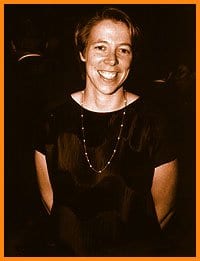Ottawa athletes hoping to take part in the 2006 Gay Games may be in trouble.
Team/Equipe Ottawa (TEO), the regional coordinating body for the international Gay Games, is on the verge of suspending its operations.
Nicole LaViolette, co-chair of the TEO board, says the suspension is a sad sign of a decline in the wider community.
“I think it just points to a larger problem,” LaViolette explains. “Increasingly in the gay and lesbian community there just is not that ethic of volunteering anymore. And I don’t think we’re the only organization that’s had that problem.”
She explains that the board will meet early this year to discuss its options but she is not optimistic about TEO’s future. Only four of 10 board members are currently sitting and the remaining board members are prepared to move on. TEO has been trying to recruit new board members for the last six to eight months with little success.
“This is not a very onerous board – particularly because the main activity that we organize for happens every four years – so it’s not like it’s intense work,” says LaViolette. “If we can’t get people to volunteer for what is a pretty light volunteer commitment, it seems to me there is a bit of a problem in the community.”
TEO was founded in 1989 and has helped hundreds of athletes participate in four Gay Games, but since that time, involvement has steadily declined. The membership is still high, “but we still can’t get six people to come forward and serve on the board,” adds LaViolette.
Jeff Bullard, co-chair of Ottawa’s Rideau Speedeaus swim club, shares LaViolette’s concern.
“I really think there is a deficit in the gay community at the moment,” he says.
The Rideau Speedeaus are one of Ottawa’s largest sport groups. Bullard describes it as a “fairly healthy” club but adds that even they have trouble finding people to take on leadership.
Bullard has been with the club since its beginnings 15 years ago and has served on the board on and off during that time. He says he has found that there is a very small group of people to draw on for leadership roles and that, understandably, most people get involved because of the sport. Even he finds that administration can seem like work and take away from enjoyment of the sport.
“A lot of people don’t see the work it takes behind the scenes,” he adds. “I think those who have been doing it for a long time are tired. I do think demographics have worked against us. We’ve lost a generation of people because of AIDS, so you don’t have that generation to draw on. And I think the civic spirit generally has diminished.”
More broadly, Bullard points to the failure of the Community Heroes Awards as a sign of a broader trend.
Bullard is also quick to compliment LaViolette on her leadership with TEO.
“As much as Nicole will say that it’s been a team effort, a lot of it has been about her personal leadership,” says Bullard. And, like LaViolette, he also points out that there is still plenty of time to organize for the next Gay Games and hopes that someone will step forward.
The Federation of Gay Games, the organization that oversees the event, has announced that a final decision regarding the location of the 2006 Gay Games has been scheduled for March 2004. Members of the Los Angeles and Chicago bidding organizations have expressed an interest in hosting the games.
Montreal had originally been selected as the host city for the 2006 games, but negotiations were broken off last November forcing the Federation to reopen the bidding process. Atlanta, Los Angeles and Chicago contended with Montreal in the original bidding process.
Mark Tewksbury, the former Olympic gold medalist in swimming and co-president of the Montreal Organizing Committee, told Capital Xtra that Montreal will “absolutely” host a sporting event in 2006. The event will not be called the Gay Games, however.

 Why you can trust Xtra
Why you can trust Xtra


